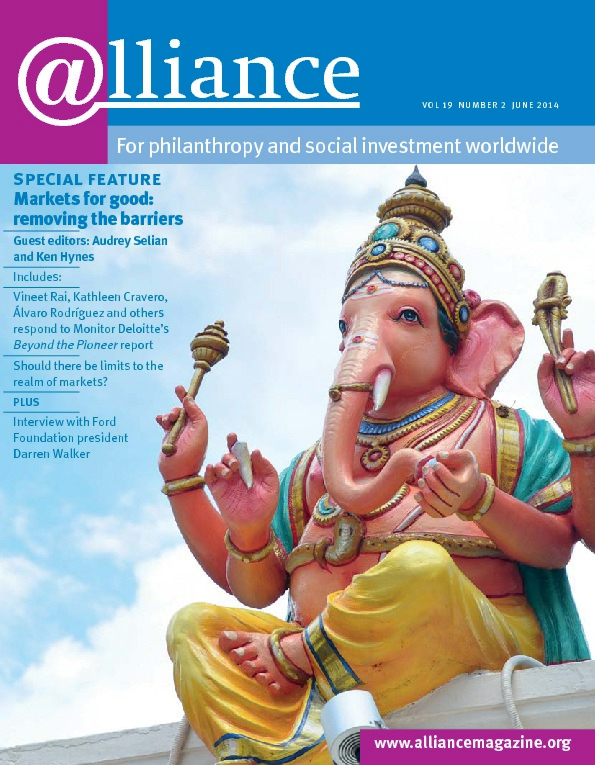Anthony Tomei describes foundation accountability as an operational necessity for those who seek to accomplish broader change.
Mr Tomei addresses the issue from his vantage point in the UK. In the US, foundations are held to stringent reporting requirements by the Internal Revenue Service (IRS), and in some cases the states, to assure compliance with our laws. Members of Congress are currently contemplating mandatory electronic filing of the forms we submit annually to the IRS to make this information more readily available to the public, a move the Council on Foundations supports with just a few cautions about fair and appropriate administration.
Beyond the reporting required under our current law, the issue of transparency and accountability is much debated. While there are some, the Council not among them, who would call for greater mandatory transparency, most debate on the issue is directed at what foundations could or should voluntarily offer to the public.
The Council’s Statement of Ethical Principles thus offers a practical and aspirational framework for foundations to consider as they balance demands for transparency with the legitimate concerns of responsible organizational stewardship. For foundations engaged globally, the Council also offers Principles of Accountability for International Philanthropy, produced in collaboration with the European Foundation Centre.
In a recent discussion here at the Council among leaders of large private and community foundations, participants spoke of a common desire for disclosure to serve a number of objectives, including advancing the foundation’s mission and programmes, asserting the integrity of the organization, strengthening relationships with current or prospective grantees, and assuring public trust.
Among the more current and timely issues under this vast umbrella of transparency, foundations are considering the potential benefits and pitfalls of sharing information publicly about operations, grantmaking decisions, successes and, importantly, failures so that both grantees and colleague foundations might learn from their experiences.
Mr Tomei has touched on a long and nuanced conversation in which the Council has always aimed to play a role. I hope our experiences can add to the international conversation. Our legal and regulatory structures may be different, but the fundamental values of transparency, accountability and honesty are universal.
Vikki Spruill
President and CEO, Council on Foundations





Comments (0)